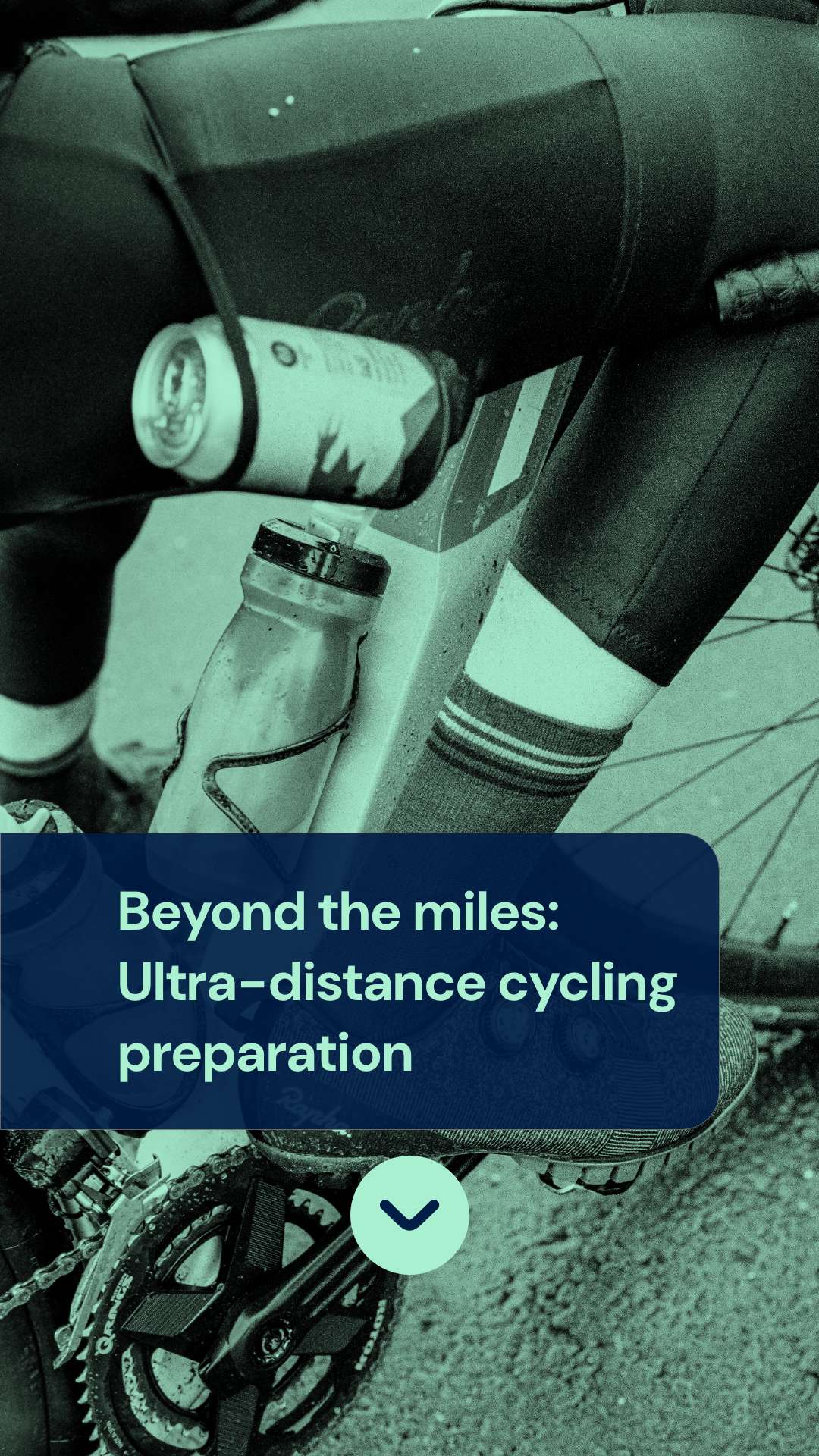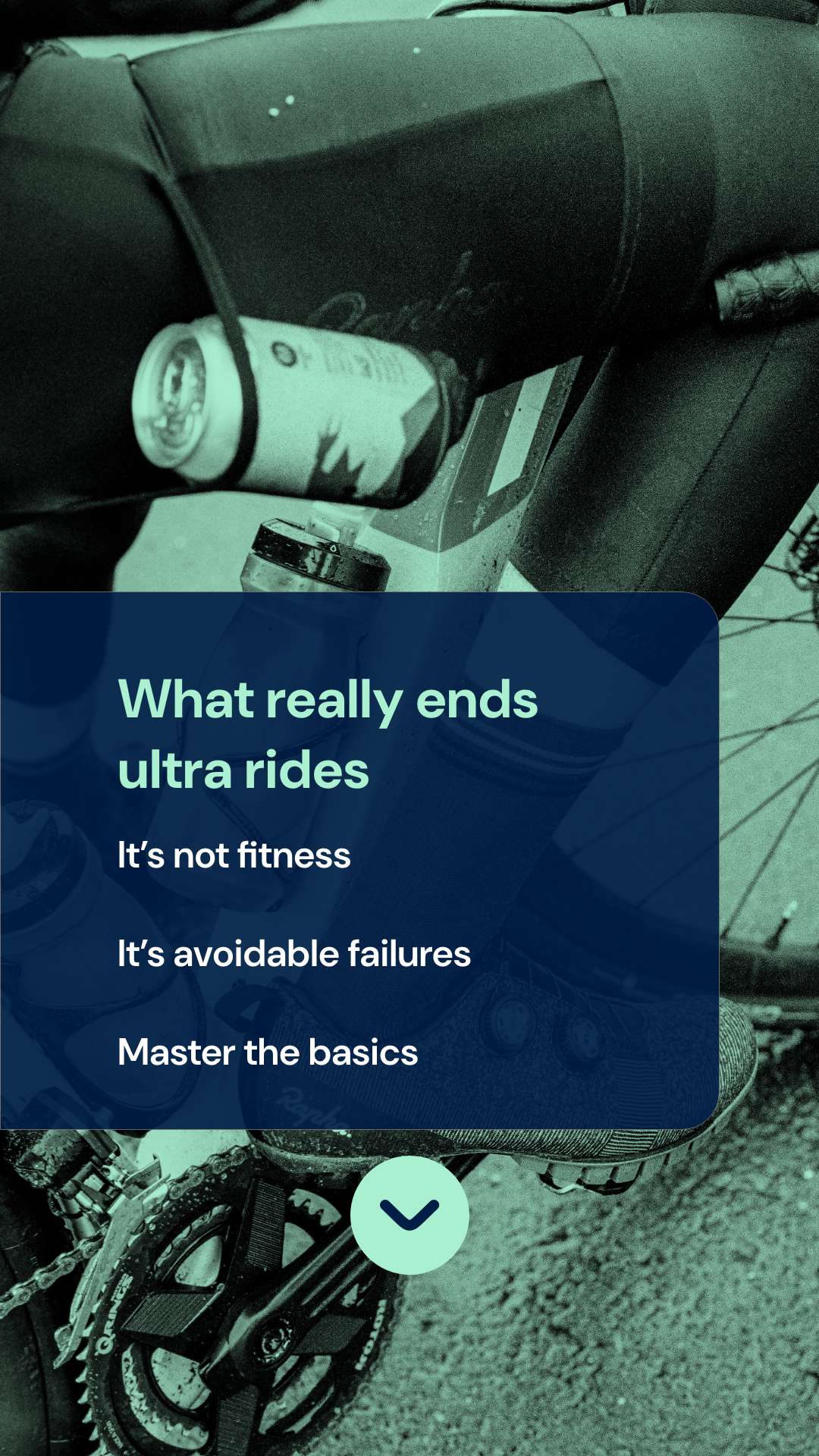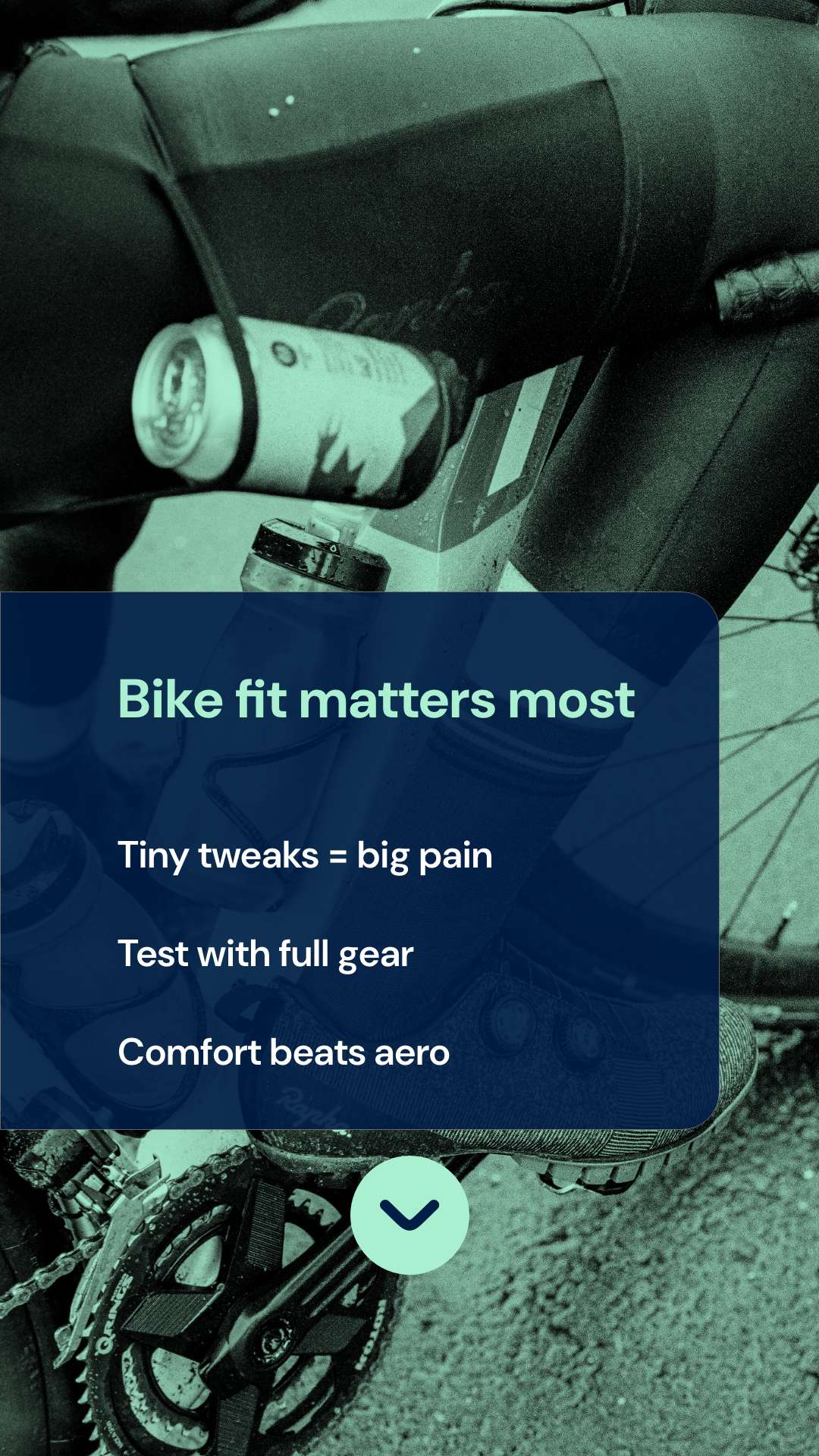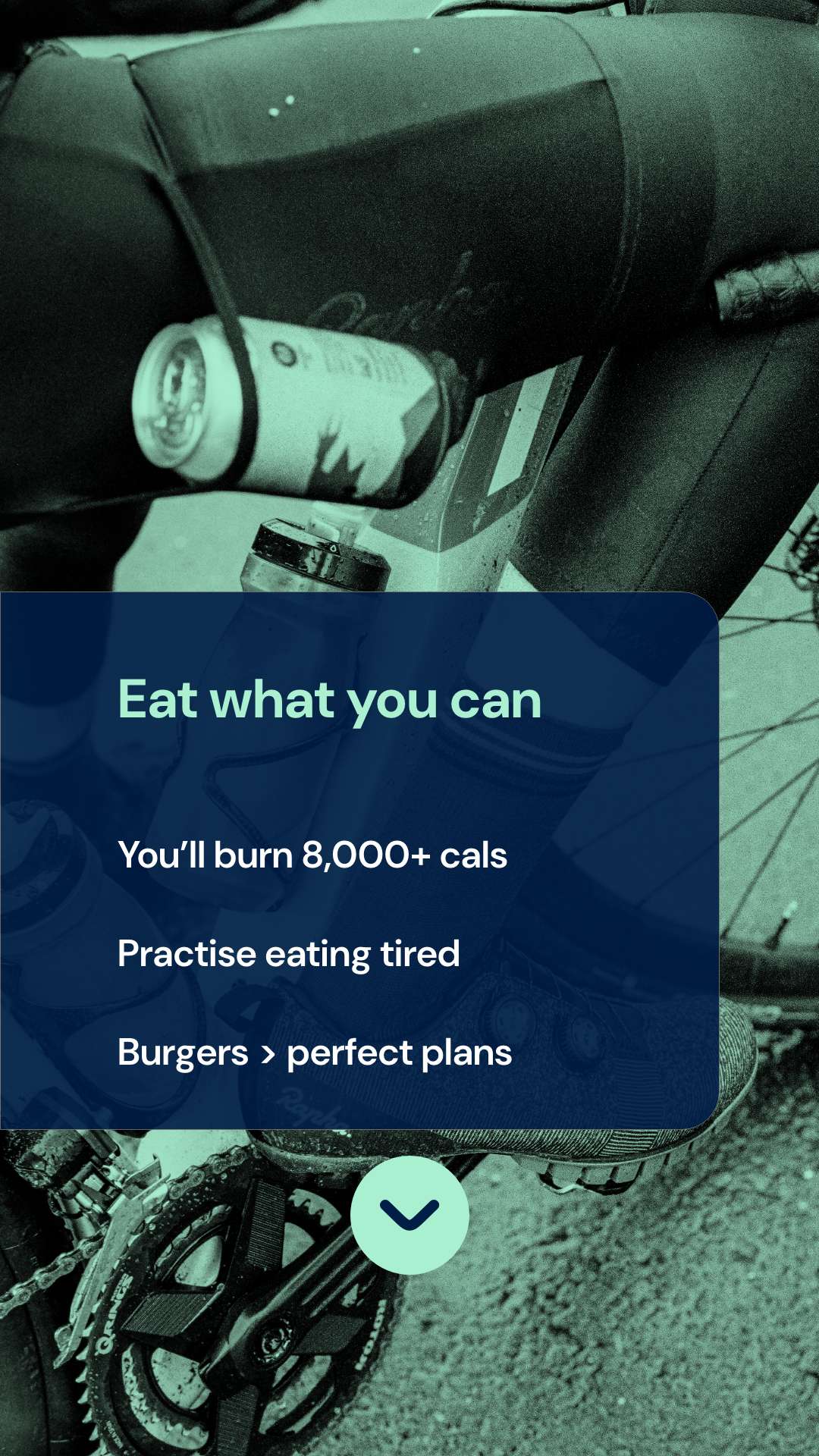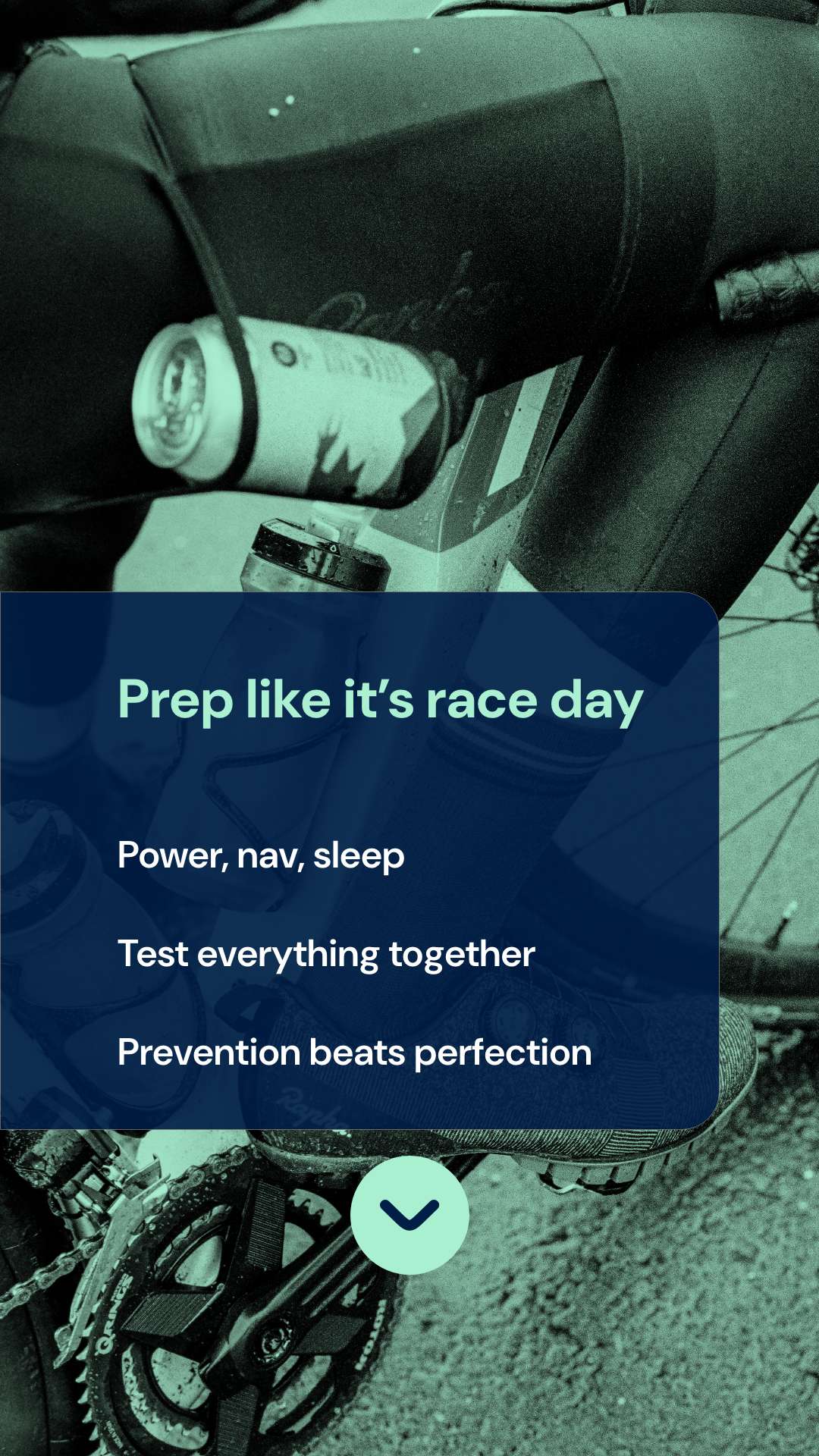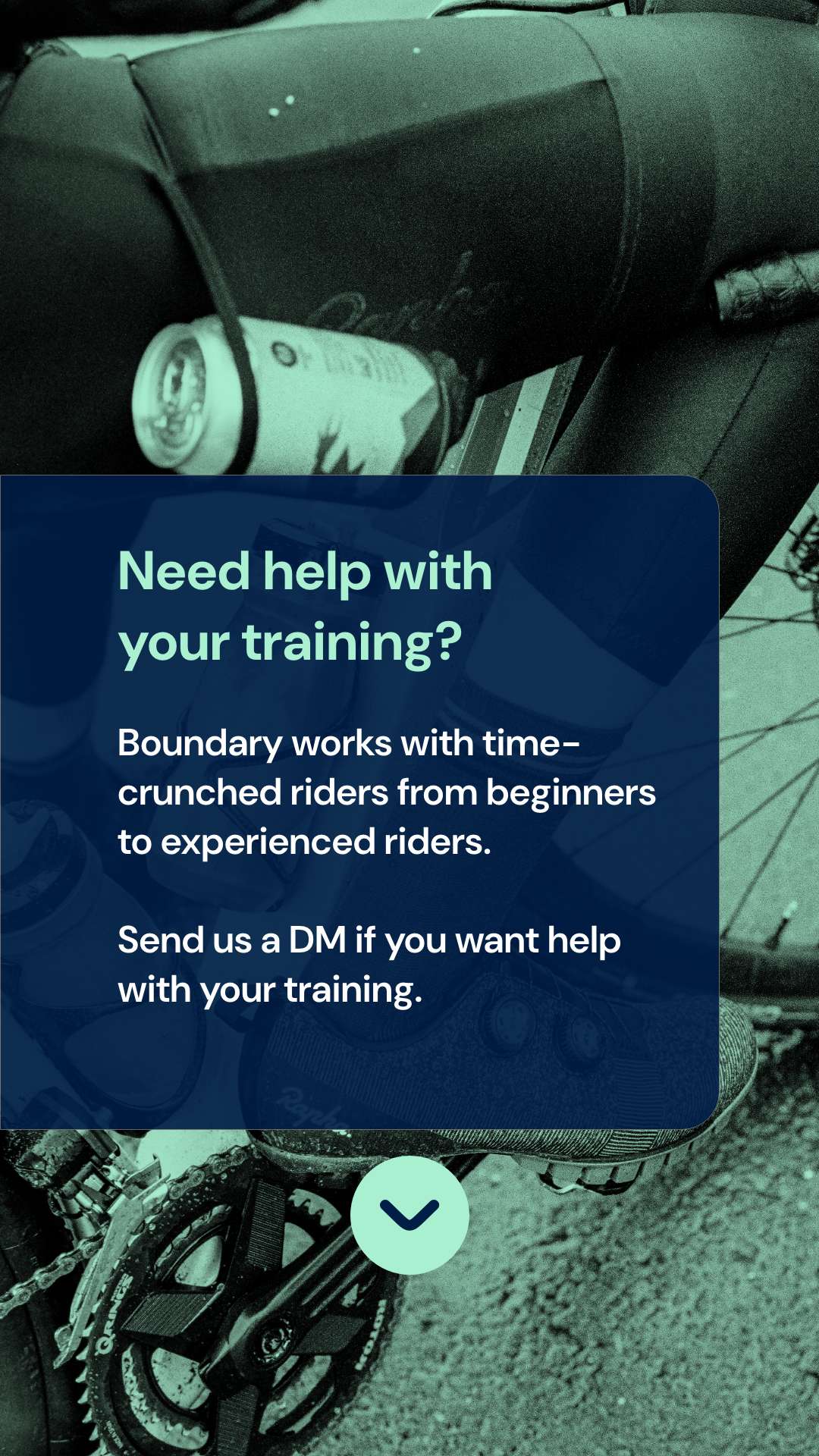After years riding ultra distance events myself, I've observed the same patterns that repeatedly affect the likelihood of success. Here's the truth: it's rarely fitness that derails these attempts. It's the preparation details that seem minor until they become event-ending problems.
Bike fit: it's important for good reason
Your bike fit must be dialled in for ultra-distance efforts. Position issues barely noticeable during 3-hour rides become significant at 8 hours, genuine problems at 12 hours, and potentially event-ending at 18+ hours.
Professional fitting is non-negotiable: Investment in a proper bike fit. I recommend this for all my coached riders. It's that important.
Test with full load: Your bike handles completely differently when loaded with gear. Do your longer training rides with everything mounted and loaded.
Here's where I disagree with some: I tell riders to prioritise comfort over aerodynamics. The fastest position is the one you can sustain for 16 hours a day, not the one that saves you 10 watts in a wind tunnel.
Nutrition: forget everything you think you know
Daily energy expenditure reaches 8,000 calories during 16-hour riding days. You can realistically consume maybe 3,500-4,000 calories without digestive rebellion. For post-event recovery, specific protein and carb targets help rebuild what these massive efforts deplete.
Most coaches will tell you to optimise macronutrients and time feeding perfectly. I take a more flexible approach after watching too many riders fail with "perfect" nutrition plans.
Practise eating without appetite: By hour 8, food becomes unappealing. At hour 12, even familiar foods trigger nausea. Yet energy intake remains essential.
In those cases I tell riders to ignore nutrition plans entirely. If you're craving a McDonald's cheeseburger at hour 14, eat the cheeseburger. In fact, eat two of them. Your body knows what it needs better than any plan.
My approach: Ultra-distance nutrition prioritises calories by any means necessary. I've had riders succeed on chocolate milk, petrol station sandwiches, and ice cream because that's what they could stomach. During the event itself, energy management and pacing become the primary concerns for multi-day success. The nutrition police hate this, but finish line riders don't care about optimal macronutrient ratios.
Sleep management: the skill nobody talks about properly
Most sleep advice focuses on duration, but I've learned timing matters more. Understanding why rest builds fitness helps frame sleep as performance tool rather than weakness. Some riders need 4 hours in one block; others function better on two 90-minute periods. Individual variation is enormous.
Plan minimum requirements: Most successful ultra riders need 2-4 hours nightly to maintain safe function. But some can function on 90 minutes and others need 5 hours. Practise in training to find what works best for you.
Master strategic napping: Twenty-minute power naps often provide more recovery than longer sleep periods when operating under time constraints.
Carry emergency sleep gear: Even when planning accommodation, carry lightweight bivouac gear. A basic system weighs under 2kg while providing crucial flexibility.
I'm still learning about sleep management, both from my own experience and from working with coached riders, and I'm convinced sleep strategy is more individual than any other aspect of preparation.
Electronics and power management
It's possible to get quite nerdy about power management but this is important. I've seen too many good rides ended by dead batteries - including rides of my own.
Calculate realistic power requirements: GPS units consume 15-20Wh during 16-hour operation. Lighting adds 10-15Wh. Phone usage, satellite trackers typically total 40-60Wh daily consumption.
Select charging methods: Dynamo hubs provide 3-6 watts continuous generation but require compatible equipment. Battery banks offer 10,000-20,000mAh storage but add weight. Mains charging works but requires route planning around availability.
Here's where I'm probably more paranoid than necessary: I always recommend two independent charging systems. Yes, it's overkill but when one fails you'll be thankful you have the backup.
Weather preparation: expect the worst
Always prepare for worse conditions than forecast because weather predictions beyond 3 days are essentially guesswork.
Protect electronics from precipitation: Test waterproofing by putting devices in sealed bags and exposing them to a lot of water. It sounds extreme, but "waterproof" equipment fails more often than manufacturers admit.
Manage heat and cold: Cold weather decreases battery performance so plan ahead if you know your event is in cold climates.
Common preparation oversights
Inadequate system integration testing: This is the mistake I see most often. Riders test their GPS, test their lights, test their bags but never test them all together during a 12-hour ride.
Underestimating time requirements: Plan for 75% riding time, 25% for everything else that takes longer than expected.
Equipment overconfidence: Gear comfortable for 6-hour rides may become problematic after 12+ hours.
Sometimes I tell riders to deliberately create problems during training to help learn how to solve problems when they're manageable and prepare you for when they become critical.
My coaching approach: prevention over optimisation
My philosophy has evolved significantly over the years. I started out focusing on optimisation trying to find perfect positions, ideal nutrition timing, and efficient training protocols. But now I've moved away from that rigid approach.
Now I prioritise prevention over optimisation. I'd rather have a rider finish successfully with suboptimal equipment than abandon with perfectly optimised gear they haven't properly tested.
The coaching process begins 6 months before target events, allowing time for bike fitting, equipment testing, and skills development. For time-crunched athletes, building endurance with limited training hours requires strategic session selection and quality focus. We identify potential failure points specific to your event and individual characteristics, then develop targeted solutions. My approach emphasises robustness over efficiency.
Essential preparation checklist
Critical equipment verification:
[ ] Professional bike fit completed and tested over multiple extended rides
[ ] All components tested over 500+ miles of actual use
[ ] Navigation: primary GPS, backup GPS, phone with offline maps
[ ] Power management: daily consumption calculated, charging strategy tested
[ ] Lighting: primary and backup systems with spare batteries
[ ] Sleep system tested if required
[ ] Repair kit customised for your specific setup
Final preparation tasks:
[ ] Route loaded and verified on all devices
[ ] Weather forecasts checked, equipment adjusted accordingly
[ ] All bookings confirmed, emergency contacts programmed
[ ] Nutrition strategies tested during longest training efforts
[ ] Waterproofing tested in sustained wet conditions
The foundation of success
Ultra-distance cycling success depends on thorough preparation addressing the complete challenge, not just physical demands. Events are decided by preparation details: correct bike fit, practised nutrition strategies, reliable electronics, and appropriate fatigue recognition.
The strongest riders aren't necessarily those who finish successfully. Success belongs to those who've prepared systematically and understand that avoiding problems often matters more than optimising performance.
This preparation process can seem overwhelming when approached individually. Working with an experienced coach provides structure, accountability, and personalised guidance that addresses your specific requirements.
If you're considering an ultra-distance challenge and want systematic preparation support, I'd welcome the opportunity to discuss how coaching can help you achieve your goals safely and successfully. The investment in proper preparation almost always determines the difference between a successful adventure and an expensive disappointment.
